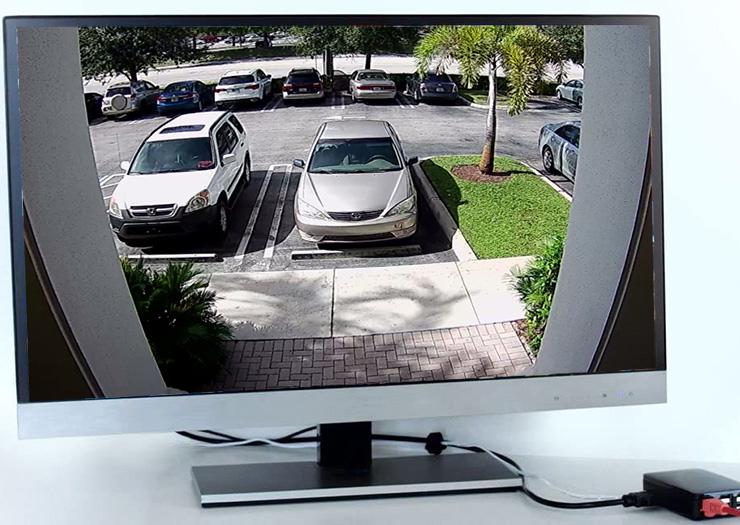Why Choose USB Flash Drives Over External Hard Drives?
Portable storage includes USB flash drives and external hard drives. Each choice has benefits, but understanding the main differences may help you choose. Compact and quick are USB flash drives. Exter...
19/02/2025
Portable storage includes USB flash drives and external hard drives. Each choice has benefits, but understanding the main differences may help you choose. Compact and quick are USB flash drives. External hard drives are superior for backup and long-term storage because of their capacity. USB flash drives are popular for their mobility, durability, cheap cost, and performance. If you're looking for convenient storage for everyday use, usb flash drives bulk from Alibaba are available in various capacities and can be customized with your logo, making them a perfect solution for business and personal needs. In this post, we'll examine the two choices to help you decide whether to use USB flash drives or external hard drives.

What Are the Key Differences Between USB Flash Drives and External Hard Drives?
Portability: Which Is More Convenient for On-the-Go?
USB flash drives are very portable, fitting easily into any pocket or backpack. Their lightweight, compact form makes them perfect for those who need to transport data on the move. External hard drives, on the other hand, are bigger and take up more room, making them unsuitable for regular travelers or people who want minimalist storage options. USB flash drives provide unparalleled simplicity of use with rapid plug-and-play capability. USB flash drives are an excellent solution for on-the-go data storage due to their tiny size and mobility.
Storage Capacity: When Do You Need More Space?
Individuals needing extensive storage for massive data or backups are well suited to external hard drives, which can provide capacities ranging from hundreds of gigabytes to several terabytes. Conversely, USB flash drives typically provide sizes between 1GB and 128GB, making them more appropriate for limited storage needs and routine data transmission. Nonetheless, the advent of high-capacity flash drives, shown by the Mini OEM Custom Logo USB flash drives offered on Alibaba, has allowed buyers to discover alternatives with capacities reaching 128GB. This suggests that USB devices might fulfill the storage needs of most residential and commercial clients.
Speed and Performance: How Do They Compare?
When it comes to file transfers, USB flash drives are often faster for smaller to medium-sized data. External hard drives, particularly older versions, may be sluggish in transmitting data, especially if they utilize USB 2.0 rather than the quicker USB 3.0 or 3.1. USB flash drives, particularly those with USB 3.0 or above, provide quicker read and write rates, making them an excellent option for transferring data rapidly between devices. While external hard drives are still superior for huge file storage, USB flash drives remain unrivaled for speed in many applications.

Why Are USB Flash Drives More Durable and Reliable?
Resistance to Physical Damage and Shock
USB flash drives are far more resistant to physical harm than external hard drives. Flash drives are solid-state storage devices, which means they have no moving elements that are susceptible to shock or damage. This makes them excellent for use in situations where hard handling is prevalent, such as travel, school, or work. External hard drives, on the other hand, have spinning disks that are more susceptible to damage from drops, bumps, and physical stress. USB flash drives are more reliable and last longer since there are no moving components.
No Moving Parts for Better Longevity
Unlike external hard drives, which depend on spinning disks and sensitive internal components, USB flash drives employ flash memory, which has no moving parts. This design offers increased durability and reduced wear and tear over time. Because there are no moving components, mechanical failure is reduced, resulting in flash drives that last longer and sustain greater physical force. USB flash drives' solid-state architecture assures they can withstand daily usage without the danger of unexpected data loss, which may occur with external hard drives due to internal failure. This makes them a more dependable long-term storage option.
Less Prone to Data Loss Compared to External Hard Drives
Because of their solid-state design, USB flash drives are less likely to lose data than external hard drives. External hard drives have spinning disks, which might fail due to mechanical difficulties, voltage surges, or unintentional drops. USB flash drives, on the other hand, are more resistant to such failures since they include no moving components. While flash drives are not impervious to data loss, they are much more dependable in maintaining data over time. This makes USB flash drives a more secure solution for customers who need to transport crucial files or sensitive data.
How Does the Price Compare Between USB Flash Drives and External Hard Drives?
Cost-Effective for Smaller Capacities
USB flash drives are often less expensive for lower storage capacities, making them perfect for users who just need to transmit a few files or store a modest quantity of data. For example, a 16GB or 32GB USB flash drive is reasonably priced. However, external hard drives are more expensive owing to their bigger storage capabilities. If you're looking for a low-cost solution for regular usage, USB flash drives are an excellent choice. They are reasonably priced and available in a variety of sizes, making them ideal for low-cost storage.
Long-Term Value of USB Flash Drives vs. Hard Drives
While external hard drives provide additional capacity, the initial cost is usually higher. USB flash drives give superior long-term value for people who do not need large quantities of capacity. They are more durable and less prone to failure, so they may endure for years without being replaced. Furthermore, the small size of USB flash drives means they are less prone to mechanical problems, resulting in a higher return on investment. USB flash devices outperform external hard drives in terms of long-term durability and value.
Pricing for High-Speed and High-Capacity Options
High-speed and high-capacity USB flash drives, including those with USB 3.0 or 3.1, are often more costly than conventional ones. However, the cost of these sophisticated choices remains substantially cheaper than that of external hard drives of comparable capacity. USB flash drives, even with huge storage capacities (such as 128GB), are less expensive than an external hard drive with comparable functionality. USB flash drives are an appealing option for those searching for a price-performance balance.
What Are the Use Cases Where USB Flash Drives Outperform External Hard Drives?
Ideal for Portable Data Transfers and Sharing
USB flash drives are particularly useful in situations requiring portable data transmission. They are ideal for transferring documents, presentations, photos, and movies across devices or among colleagues, friends, and family. Their tiny size and plug-and-play capability make them practical and simple to use, particularly in professional and educational settings. Unlike external hard drives, which are larger and heavier, USB flash drives may be readily carried in a pocket or linked to a keychain. Their adaptability makes them the ideal alternative for anybody who need rapid, portable data exchange while on the road.
Quick Backup and Recovery Solutions
USB flash drives provide unparalleled speed and ease for data backup and recovery. Whether you need to backup information on your own computer or retrieve lost data in an emergency, USB flash drives are a quick and dependable option. Their small size makes them convenient to transport in the event of an emergency, such as system failure or file corruption. External hard drives may be better suited for large-scale backup, while USB flash drives strike the right balance for smaller, more rapid backup and recovery activities. Their mobility and simplicity of use make them an indispensable tool for rapid recuperation.
Gaming and Media Storage: Which One is More Efficient?
For gamers and media aficionados, USB flash drives provide ease in quick file transfers and storage without the size of external hard drives. While external hard drives are ideal for storing big game libraries or media collections, USB flash drives provide faster loading speeds for smaller games and media assets. Their mobility makes games simple to transfer across devices, enabling players to continue playing on other PCs without losing progress. For daily usage, USB flash drives are a more efficient media storage option, providing the required speed and performance without the need for bigger, heavier external hard drives.
Conclusion
In conclusion, USB flash drives provide significant benefits over external hard drives, especially for individuals who value mobility, durability, speed, and cost-effectiveness. While external hard drives provide more storage capacity for significant amounts of data, USB flash drives are considerably more handy for daily operations such as file transfer, rapid backups, and media storage. They are more robust, with no moving components that may be destroyed, making them a more dependable long-term option. Furthermore, the low cost of USB flash drives, particularly when bought in bulk from Alibaba, makes them an inexpensive option for both personal and commercial usage. Whether you need portable data storage for personal use or branded USB drives for promotional reasons, USB flash drives are a versatile, high-performance solution that meets a wide range of requirements.




